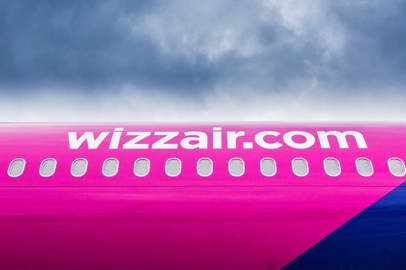28 November 2023
Lufthansa Group and Tata Communications Forge Sustainability Partnership
First bulk SAF deal for Lufthansa Group in India. SAF is a decisive technological key to more sustainable flying. Tata Communications commits to investing in Sustainable Aviation Fuel
Tata Communications, a global digital ecosystem enabler, has joined Lufthansa Group‘s Corporate SAF program with a bulk purchase of SAF for its corporate travel needs. The SAF agreement is the first of its kind by a corporate customer in India and Tata Communications has further communicated its interest of investing in SAF on a yearly basis. SAF is a decisive technological key to more sustainable flying. The SAF which is currently available and is used by Lufthansa Group is produced from biogenic residues, such as from used cooking oils. In its pure form, SAF from biogenic residues can reduce CO2 emissions by up to 80 percent compared to conventional fuel.
Lufthansa Group is strongly committed to more sustainable flying and is leading the way in transforming the industry. The Airline Group is one of the top 5 customers in SAF globally and offers a variety of products to its corporate clients for more sustainable flying. These range from bulk purchases of SAF to Sustainable Corporate Value Fares whereby corporate customers can offset 80% of their CO2 emissions through high-quality compensation projects and 20% via SAF for intra-Europe traffic. Similarly, Tata Communications is committed to integrating environmental, social and ethical principles into their core business with a focus on sustainability and enhancing long term stakeholder value.

Lufthansa Group and Tata Communications Forge Sustainability Partnership Copyright © Lufthansa Group
According to Elise Becker, Vice President Sales Asia Pacific & Joint Ventures East at Lufthansa Group: “We are delighted that Tata Communications has chosen to invest in Sustainable Aviation Fuel (SAF) in India: our first bulk SAF deal in the country. We will continue to grow our offering of products for more sustainable flying and shape the industry on this journey. It is an honour to partner with Tata Communications on their important and progressive initiatives.”
Kim Bybjerg, Vice President and Head of Continental Europe, Tata Communications, said, “At Tata Communications, we are committed to address the impacts of climate change and are aggressively working towards our goal of being Net Zero by 2035 across our global operations. To promote sustainable travel, we aim to offset our travel emissions by partnering with leading airlines like Lufthansa by investing in their SAF programme. Furthermore, as a responsible corporate in the business of delivering hyperconnected solutions for our customers, we enable them with sustainable digital solutions helping them optimise energy consumption and reduce their carbon footprint. During FY 2022-23, 16x carbon emissions were saved by our customers compared to Tata Communications operational emissions in FY 2023. SAF is one of the priority sustainability initiatives in the travel space and we are keen to support the greener way of air travel.”
Background on the use of SAF
There is no refueling of individual flights with pure SAF. As a so-called "drop-in" fuel, SAF is compatible with fossil fuel and can be blended with it without any problems. Before being transported to the airport, SAF is mixed with fossil fuel (blending) and then fed into the airport infrastructure. The Lufthansa Group ensures that the amount of SAF required to offset individual CO2 emissions is fed into the Lufthansa Group's operations within six months of purchase.
You might be interested in
Sustainability

Sustainable Mobility
Dubai Airports achieves ACI Level 4 accreditation
DXB among the few airports in the world awarded for the absolute reduction of emissions and for the ability to drive environmental change
Sustainability

Sustainable Mobility
Wizz Air's Net Zero Strategy
The company launches its "Flying Towards Net Zero" strategy, which focuses on sustainable aviation fuel (SAF) as a key lever for decarbonization
Sustainability

Sustainable Mobility
Volotea with TotalEnergies for sustainable fuel
An agreement for the supply of sustainable aviation fuel (SAF) for use on flights departing from French airports


